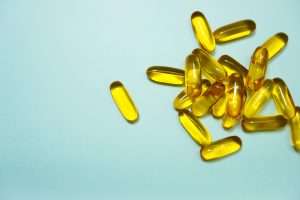 Medications and Tinnitus
Medications and Tinnitus
 There is currently no pharmaceutical intervention to eliminate tinnitus. There are, however, therapy and treatment options that can reduce the burden of tinnitus.
There is currently no pharmaceutical intervention to eliminate tinnitus. There are, however, therapy and treatment options that can reduce the burden of tinnitus.
People experiencing tinnitus often seek pharmacological interventions through prescription drugs and dietary supplements. While there are no FDA-approved drugs to treat tinnitus, there are options to address the stress, anxiety, and depression that are caused by (and can sometimes exacerbate) tinnitus.
The internet is full of misleading claims about pills to relieve/eliminate tinnitus. And while some drugs may help reduce the perception of tinnitus, that is something that your physician should prescribe and monitor. To learn more about supplements and questions to ask your physician, see below.
 Dietary supplements are pills with ingredients intended to supplement the diet. Ingredients might include vitamins, minerals, herbs or other botanicals, amino acids, and substances such as enzymes.
Dietary supplements are pills with ingredients intended to supplement the diet. Ingredients might include vitamins, minerals, herbs or other botanicals, amino acids, and substances such as enzymes.
People take dietary supplements with the intention of benefitting their health. Dietary supplements are not regulated to the same standards as prescription and over-the-counter drugs.
The U.S. Food and Drug Administration (FDA) has not approved any dietary supplements for tinnitus treatment. Although some studies have suggested benefits of supplements, the research is clear in showing that dietary supplements are ineffective for reducing the perception of tinnitus. The American Academy of Otolaryngology – Head and Beck Surgery Foundation’s Clinical Practice Guideline: Tinnitus Executive Summary states that clinicians should not recommend ginkgo biloba, melatonin, zinc, or other dietary supplements for treating patients with persistent bothersome tinnitus.
The National Institutes of Health estimates that approximately 40 percent of Americans – many tinnitus patients among them – take some form of dietary supplement. In a recent survey with 1,788 people with tinnitus, 23% of participants reported using dietary supplements for treatment. The survey confirmed the lack of efficacy of supplements to treat tinnitus. The most common supplements were ginkgo biloba, lipoflavonoid, vitamin B12, zinc, magnesium and melatonin:
- Ginkgo biloba
 Gingko bilboa in the form of EGB 761 (standard Ginkgo biloba leaf extract containing 24% of glycoside flavonoids and 6% of terpene lactones) is the most widely prescribed dietary supplement as a treatment for peripheral vascular disease (insufficient blood flow to the limbs because of damage to blood vessels) and cerebral insufficiency (not enough blood reaching the brain) that causes concentration difficulties, memory loss, dizziness, and tinnitus.
Gingko bilboa in the form of EGB 761 (standard Ginkgo biloba leaf extract containing 24% of glycoside flavonoids and 6% of terpene lactones) is the most widely prescribed dietary supplement as a treatment for peripheral vascular disease (insufficient blood flow to the limbs because of damage to blood vessels) and cerebral insufficiency (not enough blood reaching the brain) that causes concentration difficulties, memory loss, dizziness, and tinnitus.- Ginkgo is also the most studied dietary supplement in tinnitus treatment. It is believed to improve tinnitus by increasing inner ear and cerebral blood circulation and by protecting against free radicals. Several clinical trials have been performed on tinnitus patients, but the results are conflicting, with some showing positive effects and others showing no effect.1, 2 People with seizures (as in epilepsy) or bleeding disorders should not use ginkgo.
- Zinc
- Zinc is an element present in all organs, tissues, fluids and secretions of the body and is essential for stabilizing the internal environment of the body. In the auditory pathway, zinc plays a critical role in several aspects of cochlear and neuronal function. Changes in zinc absorption or excretion or an increase in bodily requirements can result in zinc deficiency. This is particularly common among the elderly, vegetarians, and alcoholics. Clinical manifestations include diarrhea, hair loss, muscle wasting, depression, irritability, and a rash on the extremities, face, and perineum. Zinc deficiency has also been related to tinnitus.3
- A few studies have evaluated zinc supplements for treating patients with tinnitus. Zinc was no more effective in the treatment of tinnitus than placebo in a group of elderly patients in a randomized double-blind placebo control study. However, a subgroup of subjects with zinc deficiency might have derive some benefit. 3, 4
- Zinc supplements are generally well tolerated, with the most common side effects limited to poor digestion, abdominal pain, and nausea.
- Vitamin B12
 Vitamin B12 is an essential vitamin for the body that affects neurologic and circulatory functions. Vitamin B12 deficiency might impair the vascular and nervous systems of the auditory system and has been implicated in hearing loss and tinnitus. Vitamin B12 deficiency is caused by dietary deficiencies or poor absorption. Because vitamin B12 cannot be synthesized by the body, a dietary source, such as fish, meat, poultry, eggs and milk and other dairy products, is critical.
Vitamin B12 is an essential vitamin for the body that affects neurologic and circulatory functions. Vitamin B12 deficiency might impair the vascular and nervous systems of the auditory system and has been implicated in hearing loss and tinnitus. Vitamin B12 deficiency is caused by dietary deficiencies or poor absorption. Because vitamin B12 cannot be synthesized by the body, a dietary source, such as fish, meat, poultry, eggs and milk and other dairy products, is critical.- Preliminary testing of vitamin B12 to treat tinnitus suggests that it could improve tinnitus.5, 6, 7 Vitamin B12 supplements are usually well tolerated, with mild side effects including diarrhea, skin rashes, and headaches.
- Melatonin
- Melatonin is a hormone produced by the pineal gland in different cells and tissues of the body, including the cochlea. Among its properties, it helps facilitate sleep, protects against damaging free radicals and ototoxic drugs, and has antioxidant effects. It has been used in the treatment of sleep disorders. A review of studies of melatonin in tinnitus treatment concluded that it could have a positive effect on sleep problems caused by tinnitus.8 Melatonin appears to be safe when used short term, but it is yet unknown whether extended use is safe. Side effects are uncommon but can include drowsiness, headache, dizziness, or nausea.
- Flavonoids
 Flavonoids are a diverse group of phytonutrients (plant chemicals) found in almost all plant foods. Flavonoids represent a large class of at least 6,000 phenolic compounds that appear in fruits, vegetables, herbs, cocoa, chocolate, tea, soy, red wine, and other edible plants and beverages. Flavonoids exhibit protective effects on cardiovascular and neurologic functions and are credited with reducing inflammation and incidence of cancer.
Flavonoids are a diverse group of phytonutrients (plant chemicals) found in almost all plant foods. Flavonoids represent a large class of at least 6,000 phenolic compounds that appear in fruits, vegetables, herbs, cocoa, chocolate, tea, soy, red wine, and other edible plants and beverages. Flavonoids exhibit protective effects on cardiovascular and neurologic functions and are credited with reducing inflammation and incidence of cancer.- Epidemiological studies suggest that lower consumption of flavonoid-rich diets is associated with the development of many age-related diseases, including cancer, cardiovascular disease, diabetes, osteoporosis, and neurodegenerative disorders.9
- Lipoflavonoid, a compound of vitamins and flavonoids, is widely advertised on the internet and in magazines as a tinnitus treatment. Only one clinical trial has evaluated the use of Lipoflavonoid Plus®alone or in association with manganese. Neither supplement was shown to be effective in reducing tinnitus.10
- Magnesium
- Magnesium is an essential element that plays a key role in many body functions, including in the auditory pathway. Research studies show decreased serum magnesium levels to be associated with tinnitus, implicating magnesium in the pathophysiology of subjective tinnitus.11
- Some preliminary study results demonstrated that magnesium supplements likely benefit ear functions and suggested it might have a beneficial effect on tinnitus perception. 12, 13
- What's in the label may not be what's in the product
- Not all ingredients in dietary supplements are on the label. For example, the FDA has found prescription drugs, including anticoagulants and anticonvulsants, in products being sold as dietary supplements. Since 2007, over 1,800 fraudulent dietary supplements have been found by the FDA.
- Dietary supplements are regulated as food, not as drugs
- Dietary supplement manufactures do not need to prove the safety or effectiveness of their products to the FDA prior to selling them.
- Mixing medications with dietary supplements can endanger your health
- According to the National Institutes of Health, many dietary supplements contain active ingredients that can strongly affect the body, so it’s important to be aware of possible side effects. For instance, if taken before or after surgery, certain dietary supplements can affect your response to anesthesia. Dietary supplements can also interact with certain prescription drugs in ways that might cause problems. A few examples include:
- Vitamin K can reduce the ability of the blood thinner Coumadin® to prevent blood from clotting.
- St. John’s wort can speed the breakdown of many drugs (including antidepressants and birth control pills) and thereby reduce these drugs’ effectiveness.
- Antioxidant supplements, like vitamins C and E, might reduce the effectiveness of some types of cancer chemotherapy.
- According to the National Institutes of Health, many dietary supplements contain active ingredients that can strongly affect the body, so it’s important to be aware of possible side effects. For instance, if taken before or after surgery, certain dietary supplements can affect your response to anesthesia. Dietary supplements can also interact with certain prescription drugs in ways that might cause problems. A few examples include:
- “Natural” doesn’t necessarily mean safe
- The safety of supplements can depend on their chemical makeup, how they work in the body, the dosage, and how they are prepared. Certain herbs, such as kava – used for alleviating insomnia and/or anxiety – can cause liver damage.
 What are possible side effects? Is there anything I should watch for? What do I do if I get a side effect
What are possible side effects? Is there anything I should watch for? What do I do if I get a side effect- Should I avoid any other medicines, dietary supplements, or treatments while using this?
- Should I avoid any drinks, foods, other substances, or activities while using this?
- When should I start to feel differently? When should I report back to the doctor?
- Will this take the place of anything else I am using?
- Are there any special directions for using this?
- Will I need any tests (blood tests, x-rays, other) to make sure it is working as it should? When? How will I get the results?
- What should I do if I miss a dose?
- What do I do if I use too much?
- Where and how can I get more written information about this?
- Can I use a generic form?
